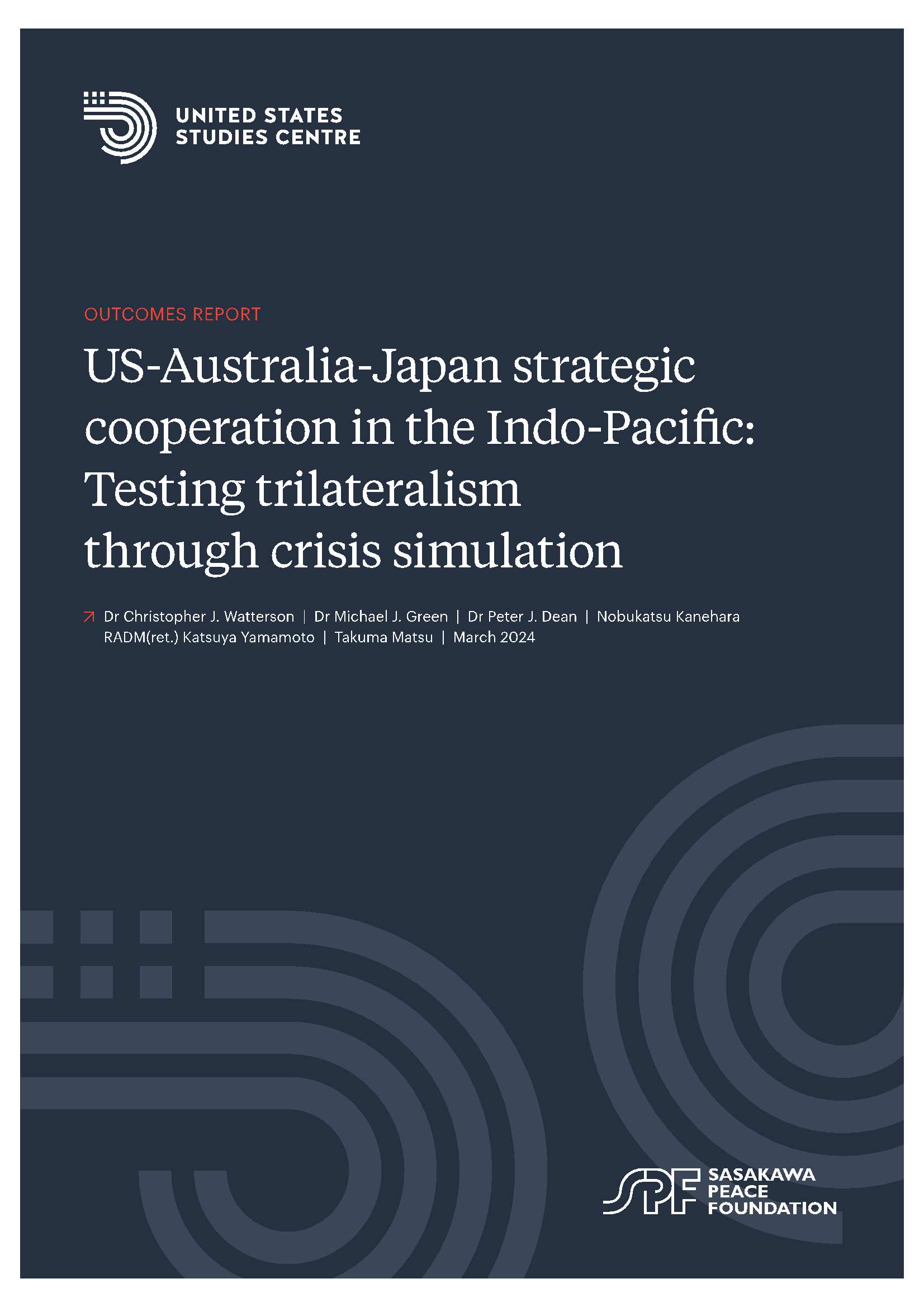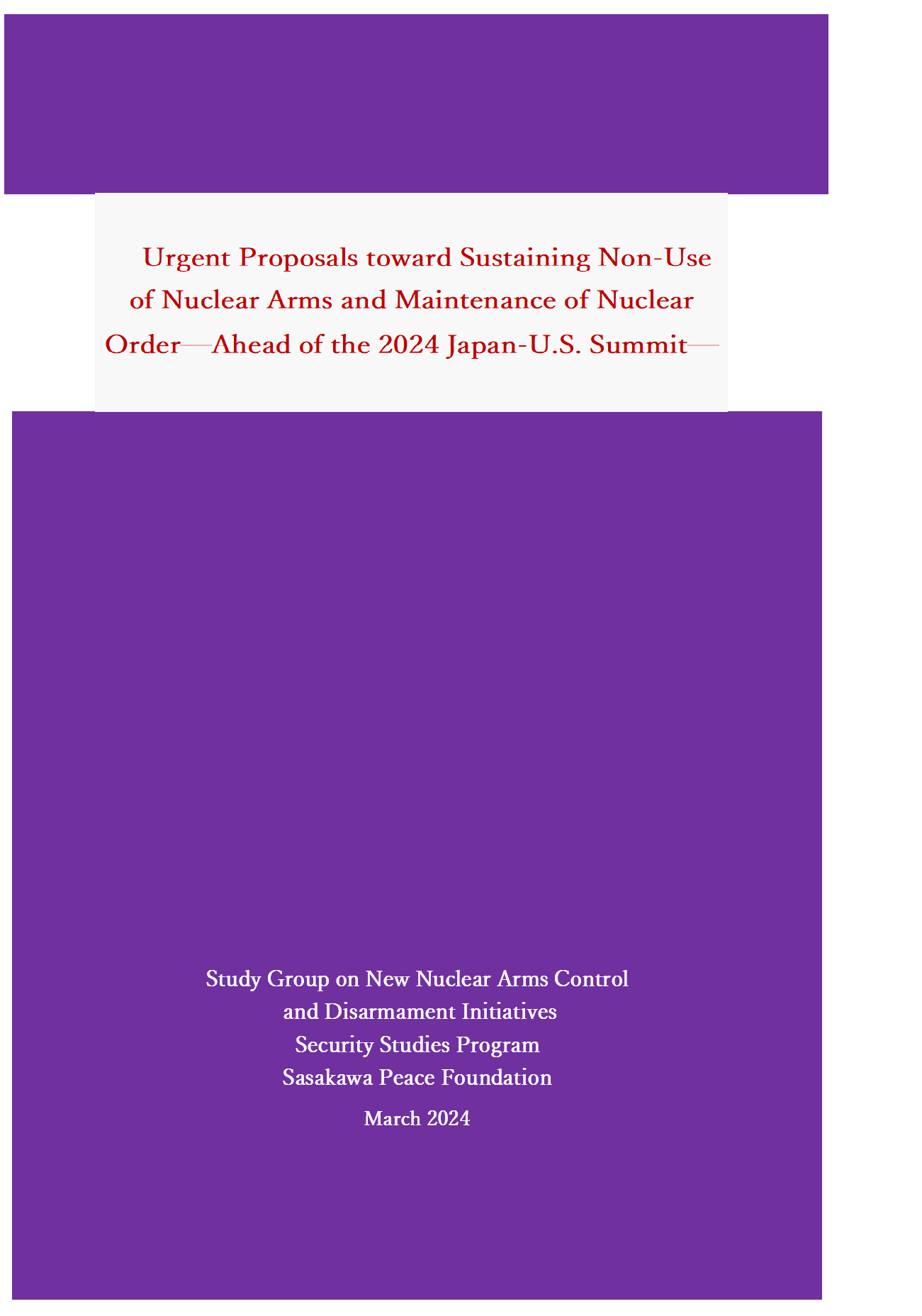The Study Group on New Nuclear Arms Control and Disarmament Initiatives (chaired by Professor Tatsujiro Suzuki, Nagasaki University), established by the Security Studies Program of the Sasakawa Peace Foundation, has published a set of policy recommendations entitled "Urgent Proposals Toward Sustaining Non-Use of Nuclear Arms and Maintenance of Nuclear Order: Ahead of the 2024 Japan-U.S. Summit.”
This study group was created to look at ways to reduce the risk of using nuclear weapons and achieve new nuclear arms control and disarmament amid the unprecedented heightening of the risk of nuclear arms use in light of Russia’s nuclear intimidation in its invasion of Ukraine, China’s rapid nuclear arms expansion, North Korea’s attempts to accelerate its development of nuclear weapons and missiles, and other ongoing changes.
Under these circumstances, Japanese Prime Minister Fumio Kishida was invited to the U.S. for a state visit and held a summit meeting with U.S. President Joe Biden in April 2024. Based on the study group’s discussions and research, we took this opportunity to make these urgent proposals first in Japanese to outline concrete measures that the Japanese government can take to reduce the risk of nuclear weapons use and find a new path toward nuclear arms control and disarmament. In order to make the purpose of this proposal known not only to the Japanese government but also to international organizations and government officials around the world, the report has also been made available in English.
Click
here to download the recommendations.

